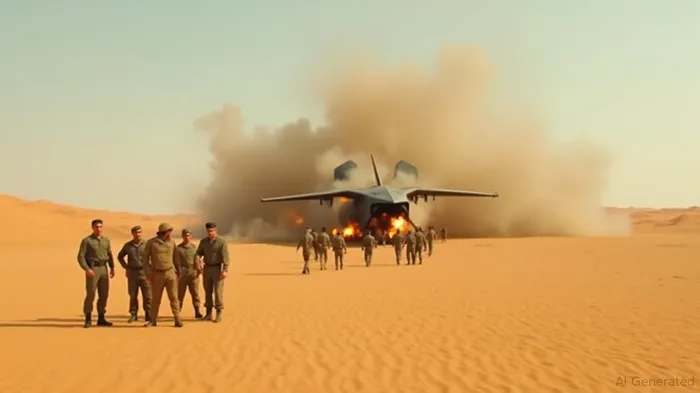U.S. Airstrikes Delay Iran's Nuclear Program by Years
Vice President JD VanceETY-- has recently made a series of statements regarding the U.S. stance on Iran, emphasizing that the U.S. is not at war with Iran but is actively engaged in countering Iran's nuclear program. Vance asserted that Iran is not proficient in warfare and should consider seeking peace. He also clarified that the U.S. has no intention of deploying ground troopsTROO-- in Iran, despite the ongoing tensions.
Vance's remarks came in the wake of U.S. airstrikes on three of Iran's nuclear sites, which were part of a coordinated operation. The operation, which involved decoys and deception, metMET-- with no resistance from Iranian forces. Defense officials confirmed that the mission's goal of destroying nuclear sites in Fordo, Natanz, and Isfahan had been achieved. Initial assessments indicated that all three sites sustained severe damage.
Vance expressed confidence that the strikes had significantly delayed Iran's nuclear weapon development, pushing the program back by many years. He also noted that the U.S. had been negotiating aggressively with Iran to find a peaceful settlement but that President Trump made his decision after assessing that Iran was not acting in good faith. Vance suggested that the strikes provided an opportunity to reset negotiations and urged Iran to decide not to be a threat to its neighbors or the United States.
Secretary of State Marco Rubio echoed Vance's sentiments, stating that there are no planned military operations against Iran unless Iran attacks U.S. interests. The U.S. administration's messaging suggested confidence that any fallout from the attack would be manageable and that Iran's lack of military capabilities would ultimately force it back to the bargaining table.
Iran's foreign minister, however, signaled that it was the U.S. and its allies that closed the door on diplomacy. He posted on X, "Last week, we were in negotiations with the US when Israel decided to blow up that diplomacy. This week, we held talks with the E3/EU when the US decided to blow up that diplomacy. What conclusion would you draw?"
The international community has reacted to the U.S. strikes with a mix of condemnation and calls for diplomacy. Iran criticized the actions as a violation of its sovereignty and international law, while other nations have expressed concern about the potential for escalation and have called for a rapid resumption of negotiations.
The U.S. administration's approach to Iran reflects a strategy of using military force to disrupt Iran's nuclear program while avoiding a full-scale war. The administration has signaled a willingness to renew talks with Iran and avoid a prolonged conflict, emphasizing that the U.S. does not seek war with Iran. The strikes on Iran's nuclear sites were part of a broader effort to counter Iran's nuclear ambitions and prevent it from developing a nuclear weapon. The U.S. administration's messaging has been coordinated and consistent, with top officials emphasizing the need for diplomacy and caution in the aftermath of the strikes.

Quickly understand the history and background of various well-known coins
Latest Articles
Stay ahead of the market.
Get curated U.S. market news, insights and key dates delivered to your inbox.



Comments
No comments yet